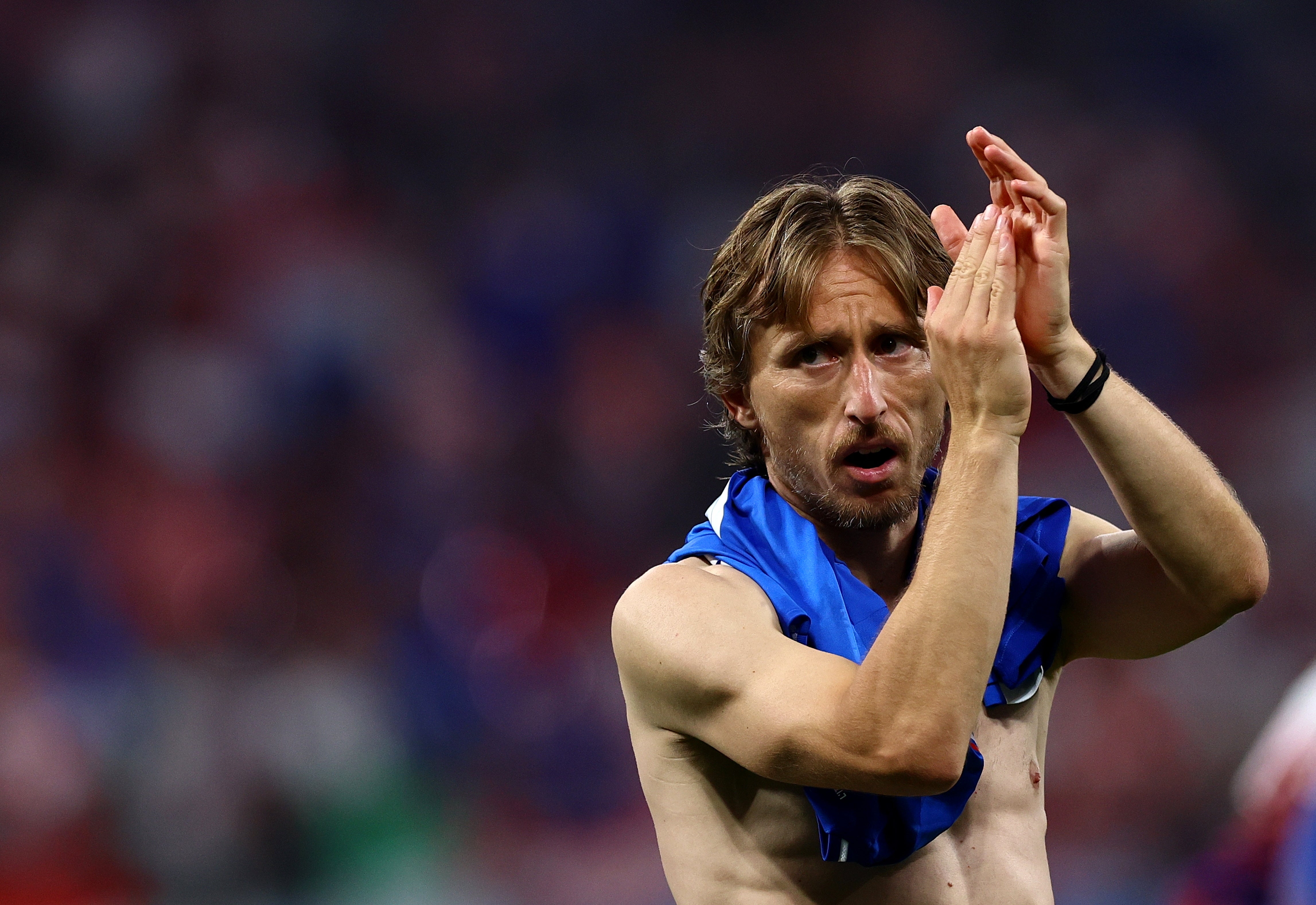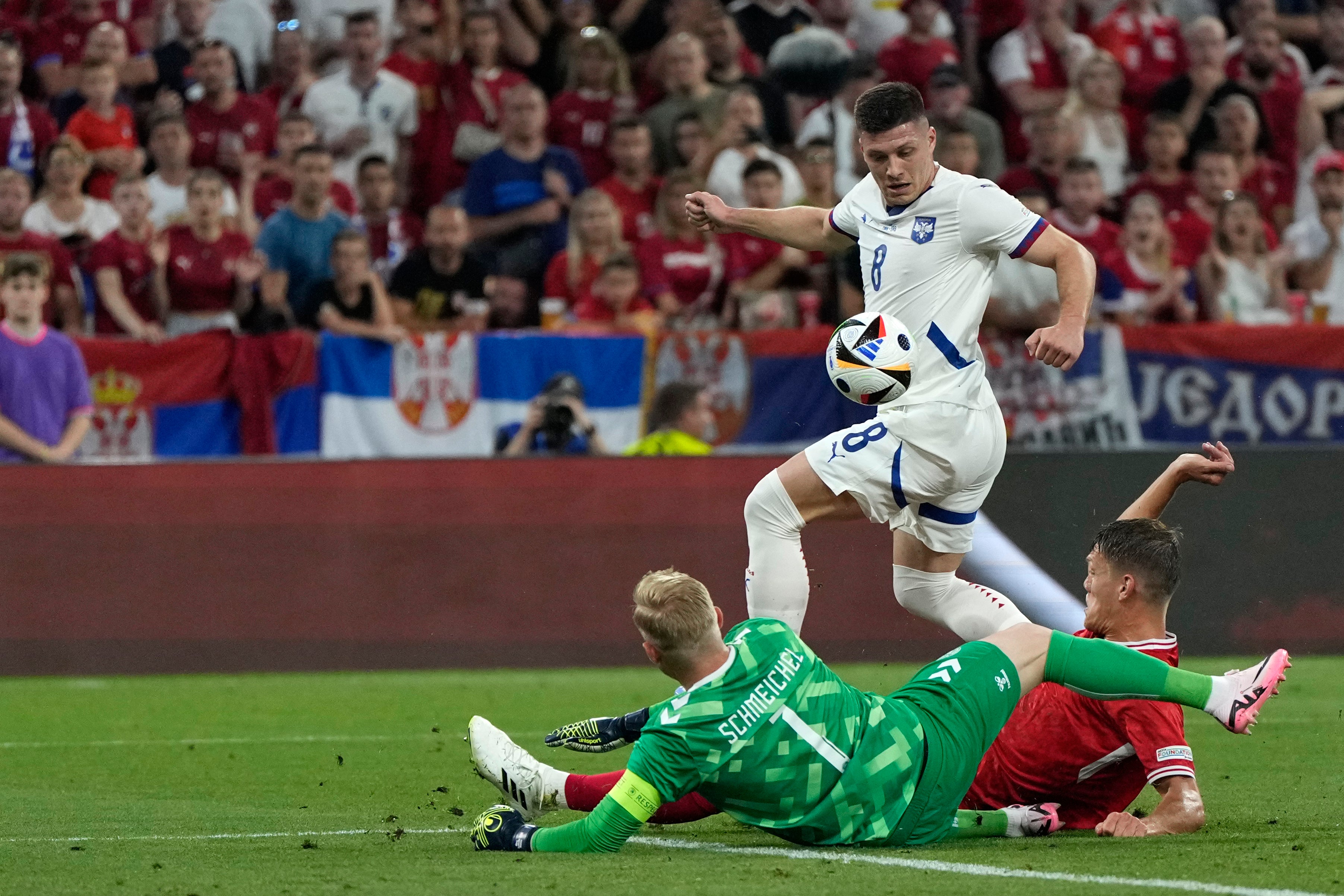Euro 2024’s eliminated teams prove the controversial format is working
All eight sides who crashed out at the group stage brought something to the European Championship party
It took 36 games to get rid of eight teams. It will take 15 more to dispense with another 15. There can be a lopsided element to Euro 2024, taking a long time to remove one-third of sides, then rushing to expel the others. The last few days have been laced with reprieves for those who occupied third place; the way 16 of 24 advanced meant Slovenia and Slovakia could settle for draws in their final group games.
At times, it underlined the argument that there is a purity and a greater sense of jeopardy to the old model of four groups of four. Certainly, overloaded with quality outfits, Groups B and D were a throwback to the days of 16-team European Championships; reasons to rue the expansion, perhaps. Had the tournament been smaller there would have been more pool-stage games such as Croatia against Italy, with everything on the line. As it transpired, Italy would have been out but for their very late leveller.
The nostalgic could be forgiven for hankering after the old format. And yet the departed sides have offered an endorsement of sorts for a 24-country competition. Each of the eight has contributed something; some a lot.
In Scotland’s case, the impressive element stemmed more from the ebullient support than the underwhelming team; even then, however, Steve Clarke’s side at least went toe to toe with an impressive Switzerland side. But the Scottish fans illustrated a point: some of the atmosphere has come from the travelling armies who will now head home, whether the spaghetti-snapping Albanians or the Croatians who turned Leipzig into an enclave of Zagreb. Reprehensible chants about the Serbs brought punishments but is notable some of the smaller nations have brought the larger fanbases. In Ukraine’s case, they had a symbolic value that went well beyond football.
Croatia are World Cup perennials, but most of the eliminated are not. That seven of the eight early departures are eastern European has significance. Europe’s World Cup slots tend to be dominated by those from the western half of the continent. Italy have contrived to miss the last two tournaments but the five biggest nations usually qualify, often accompanied by Portugal, Belgium and the Netherlands. If enlarging the European Championships was designed with their more easterly counterparts in mind, there has been a footballing logic.

Europe has sufficient strength in depth that Croatia, second and third in the last two World Cups, could go out at the first hurdle; that Slovenia and Georgia, who felt like two of Euro 2024’s three rank outsiders, progressed. Virtually every game has been close: the first was the only one decided by a four-goal margin, when Germany demolished Scotland 5-1, and only three more have seen the respective sides separated by three goals.
Every team has claimed at least a point, some against the favourites. Croatia were seconds from beating the holders Italy. Poland drew with World Cup finalists France. They displayed an ability to trouble their supposed superiors. Albania struck after 23 seconds against Italy. Czechia led against Portugal. Several can attribute their absence from the knockout stages in part to late goals: Czechia conceded injury-time winners to Portugal and Turkey, Scotland one to Hungary, Croatia two injury-time equalisers.
But, even in going out, there were moments of real excitement some could savour: Luka Jovic’s 95th-minute equaliser for Serbia against Slovenia, Klaus Gjasula’s similarly late goal for Albania against Croatia and Kevin Csoboth’s 99-minute decider against Scotland. There was the bittersweet double of Luka Modric’s missed penalty and goal 33 seconds later in the draw with Italy.

There were touches of quality: Roman Yaremchuk’s injury-time winner for Romania against Slovakia, Lukas Provod’s opener for the Czechs against Portugal. There was something valiant in the Czechs’ efforts to beat Turkey with 10 men, just as there was in Croatia’s huge effort against Italy. Each could rue individual inspiration: Georgia goalkeeper Giorgi Mamardashvili was inspired to deny the Czechs victory in that contest, Italy substitute Mattia Zaccagni scored one of the goals of the tournament to thwart Croatia.
Some only had one poor performance to rue: Hungary’s against Switzerland, Ukraine’s against Romania. Poland arguably had none. Both they and Croatia are entitled to think that if they had been in four of the other five pools, they would have progressed. By contrast, Scotland, Serbia and Hungary arguably underachieved; even then, Serbia only lost one game. Albania may have exceeded expectations; they have actually led for more minutes than Portugal so far.
They would have been a welcome presence in the last 16, as would Croatia. Modric and Robert Lewandowski represent the biggest names who now won’t feature in the knockout stages, one a Ballon d’Or winner, the other who may have been had the prize been given in 2020. Now neither has made this particular cut. But if a 24-team format has obvious imperfections, the continent has enough relatively evenly-matched sides to fill it. And the eight cast aside have, in their different ways, added to the flavour, colour and drama of Euro 2024.
Join our commenting forum
Join thought-provoking conversations, follow other Independent readers and see their replies
Comments

Bookmark popover
Removed from bookmarks